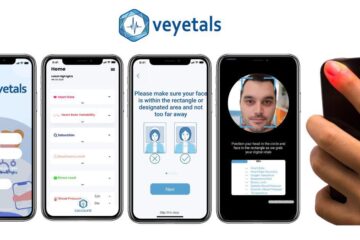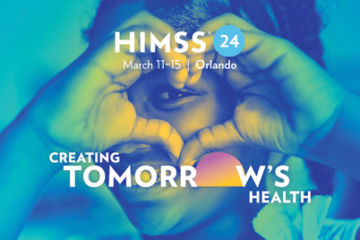Image Credit: Canva
The rapid advancement of technology has revolutionized the way we monitor our health and fitness. While wearables have dominated the market, a new and exciting technology called Remote Photoplethysmography (rPPG) is emerging, offering non-contact health monitoring. In this blog post, we will delve into the world of non-contact health monitoring with rPPG and explore its potential implications for the future of healthcare.
Table of Contents
ToggleNon-Contact Health Monitoring: A New Paradigm
Traditional wearables, such as fitness trackers and smartwatches, have become increasingly popular in tracking vital signs and promoting a healthier lifestyle. However, these devices often require direct contact with the skin, limiting their comfort and convenience. Enter rPPG, a groundbreaking technology that allows for non-contact health monitoring using video recordings. By analyzing subtle changes in skin color caused by variations in blood volume, rPPG algorithms can extract vital signs like heart rate, respiration rate, and blood oxygen saturation without the need for physical sensors or devices. This non-invasive and non-contact approach opens up a whole new realm of possibilities for health monitoring.
Advantages of Non-Contact Health Monitoring
Comfort and Convenience: Unlike wearables that necessitate physical contact, non-contact health monitoring with rPPG eliminates the need for cumbersome devices or straps. Users can be monitored effortlessly and comfortably, without any discomfort or restriction.
Hygiene and Safety: Wearables can sometimes cause skin irritation or allergic reactions, particularly when worn for extended periods. Non-contact health monitoring with rPPG reduces the risk of such issues, making it a safer and more hygienic option. This is especially crucial in clinical settings where patient safety is paramount.
Continuous Monitoring: Wearables often require regular charging or removal for charging purposes, leading to interruptions in data collection. Non-contact health monitoring with rPPG enables continuous monitoring over extended periods, allowing healthcare professionals to gather comprehensive insights into a patient’s well-being.
Remote Patient Monitoring: Non-contact health monitoring is particularly valuable in remote patient monitoring scenarios. Patients can be monitored from a distance, reducing the need for frequent hospital visits and enabling healthcare providers to assess their condition in real-time. This technology has the potential to revolutionize telemedicine, bringing healthcare to underserved areas and improving access to quality care.
Future Implications and Applications
The implications of non-contact health monitoring with rPPG extend far beyond individual well-being. This technology can be integrated into smart environments, such as homes or workplaces, to monitor the health and stress levels of occupants. By analyzing physiological parameters, rPPG can provide valuable insights into an individual’s overall wellness, enabling early intervention and personalized health recommendations.
In the realm of sports, non-contact health monitoring with rPPG holds promise for athletes and trainers. It allows for the tracking of vital signs without the need for intrusive devices, improving comfort and performance. By analyzing real-time data, athletes can optimize their training regimens and monitor their recovery, ultimately enhancing their athletic achievements.
Furthermore, the unique physiological signatures captured through rPPG can be utilized in biometric authentication systems. Individuals can be identified based on their distinctive physiological patterns, adding an extra layer of security to authentication processes.
Conclusion
Non-contact health monitoring with rPPG represents a significant advancement in healthcare technology. By eliminating the need for physical contact, it offers advantages in comfort, convenience, hygiene, and continuous monitoring. As this technology continues to evolve, we can expect transformative changes in healthcare and a future where non-contact health monitoring becomes the new standard.
ntroducing Veyetals, the cutting-edge contactless vitals monitoring app that is revolutionizing healthcare management. Our cloud-based API is lightweight and seamlessly integrates with the healthcare apps and platforms that matter to you most. With Veyetals, you can measure patient vitals in real-time, enhancing the continuum of patient care and improving health outcomes.
But Veyetals doesn’t stop there. Our app is interoperable with other health management solutions, ensuring information sharing between different systems and providing a holistic view of patient health. Plus, our easy-to-use interface makes it simple for healthcare providers to stay on top of vital signs and respond quickly to changes in patient health.
Ready to join the future of healthcare management? Contact us HERE to learn more about Veyetals. And don’t forget to follow us on LinkedIn for the latest updates and insights.



